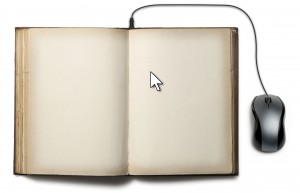In anticipation of the upcoming Bryn Mawr College student awards ceremony on April 25th 2013 at 6.00pm, we are excited to share the second winning entry from our annual essay competition. This year we invited both current undergraduates and alumnae to respond to the prompt “Transformations: How has the Bryn Mawr College experience made you the person you are today?” Our alumni winner, Kären M. Mason, class of 1975, was announced on the blog in March. The winning undergraduate essay was written by Emily Adams, class of 2014, and you can read her submission below. Congratulations to Emily!
 I have to be honest—this essay was extraordinarily difficult to write. I spent weeks thinking about what to say, mulling it over as I walked to and from class, poring over my old college application essays for inspiration. I wrote and rewrote dozens of opening paragraphs. I seriously considered simply submitting a list of all the different majors I considered before I finally settled on my current one (which is light-years away from my original plan in high school). And I made a lot of bad jokes about the steadily-decreasing length of my hair (the infamous “Bryn Mawr chop”), the sudden appearance of a rainbow of flannel shirts in my wardrobe, and my inability to be on time for anything, ever.
I have to be honest—this essay was extraordinarily difficult to write. I spent weeks thinking about what to say, mulling it over as I walked to and from class, poring over my old college application essays for inspiration. I wrote and rewrote dozens of opening paragraphs. I seriously considered simply submitting a list of all the different majors I considered before I finally settled on my current one (which is light-years away from my original plan in high school). And I made a lot of bad jokes about the steadily-decreasing length of my hair (the infamous “Bryn Mawr chop”), the sudden appearance of a rainbow of flannel shirts in my wardrobe, and my inability to be on time for anything, ever.
It’s not that I don’t have anything to say. On the contrary, my time at Bryn Mawr has been the most incredible, meaningful, and transformative two-and-a-half-years of my life. Every time I come home on breaks, my parents comment that I seem older, stronger, wiser, more sure of myself and the world around me. I, too, can feel the transformation, in the way I carry myself, in the way I approach new challenges, in the way I redefine my sense of self with every new experience. Indeed, I certainly do not suffer from a lack of material. The problem, then, lies in verbalizing those changes, in putting a lifetime’s worth of growth into a concise, coherent essay.
I fell in love with Bryn Mawr the second I stepped on campus, as an eager high school senior with her heart set on a women’s college. I gushed to my dad about the intelligent conversations I’d overheard at the dinner table, about all the fascinating people I’d met in just one overnight visit. And he gushed back about the wonderful things he’d heard from Public Safety and the Dean’s Office, the beauty of the campus, and, of course, the food (we were both smitten by the pizza at Haffner). A few days later, I sent in my deposit, and I’ve never, ever regretted it.
My first year passed by in a blur of new friends and new experiences. I worked my first food service job, where I made a lot of mistakes, learned from all of them, and emerged on the other side with a solid understanding of what hard work really is and what it means to be part of a team. I got my first chance to explore a big city without my parents. I took one English class and promptly abandoned my planned Psych major with a Neuroscience concentration. I took a lot of risks—trying out for a capella groups, speaking at a national conference, signing up for classes I didn’t know anything about—and every time, I emerged with a clearer vision of my life and a stronger sense of confidence in myself. I learned that I really didn’t want to be a neurologist, that I was a terrible fencer, that close friendships often emerge from the most unexpected situations (crumbling feta cheese at Haffner, for instance, which is how I met my heller).
My second year was more difficult. I began to find myself confronted by assignments which stretched my knowledge to its limits, which forced me to dig deeper and try harder than I ever had before. I took classes which made me re-evaluate the ways in which I perceived the world and re-examine things I had never thought much about—the representation of women in food commercials, for instance, or the social implications of Russian’s neutral pronoun—and with every day, my world became larger and more complicated, and I was quite certain I would never be able to fully understand the things I was learning. But I finally made it through with a newfound ability to think critically and to question everything, and to view each class and each assignment as an intellectual journey within itself. I left my classes last spring not just with grades, but also with a more well-rounded sense of personal identity and a more focused understanding of the “real world” I would one day enter.
This semester, I am studying abroad in Saint Petersburg, Russia. Though I’m not on campus, I still consider this semester to be an essential part of my Bryn Mawr experience, as I never would have ended up here if it weren’t for the Russian classes I took my first two years and the professors who encouraged me to study in Russia. This semester has been the most difficult and the most meaningful of my college experience thus far, and I am grateful to Bryn Mawr for teaching me that the greatest trials offer the most valuable rewards, and that anything worth having is worth fighting for. Without the lessons I learned at Bryn Mawr—taking advantage of every opportunity, doing the things you think you can’t do, never giving up, even when the problem seems insurmountable—I would have never made this decision, and I would have never met the fascinating people I’ve met and seen the incredible things I’ve seen. Everything I do here, as well as everything I do in the future, is a direct result of Bryn Mawr having guided, pushed, and occasionally dragged me in the right direction.
A Bryn Mawr education is difficult. It will take time, it will take effort, and it will, at times, feel impossible. That’s all part of the process. Bryn Mawr recognizes the passion that’s already starting to glow inside of you, shelters it, and builds it up until you’re burning brightly for all the world to see. It makes you into the person you always hoped you would be and reminds you that there’s still room to grow. It pushes you to the very edge of your capabilities and then demands more, knowing that you will rise to the challenge. I wrote in my high school application essay that Bryn Mawr is the very best place for unconventional women to be nurtured and to thrive before heading out into the world to do great things. Three years later, I still believe that, and every day I am honored to be one of them.








